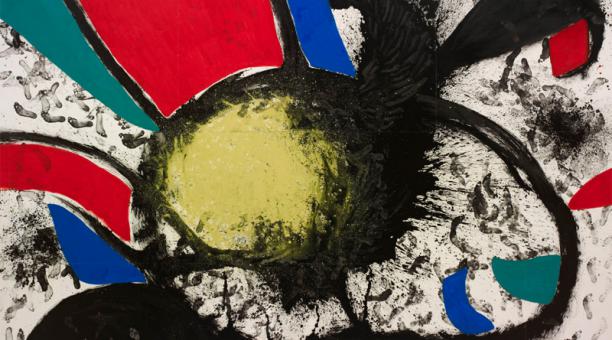
“Joan Miró and the Death of Painting” focuses on works of the year 1973 when the eighty-year old artist was preparing for an important retrospective at the Grand Palais in Paris. In a series of slashed and punctured canvases of 29 March 1973, woven reliefs (‘Sobreteixims’ and ‘Sobreteixims-Sacks’) made in collaboration with Josep Royo in 1972 and 1973, and in five ‘Toiles brûlées’ (Burned Canvases) executed between 4 and 31 December 1973 Miró gave full vent to his aesthetic rage. Just as critics were announcing the ‘death of painting’ as a fait accompli in the face of practices that challenged the master narratives of High Modernism — process art, performance, and land and installation art — Miró put painting under pressure in an attempt to renew its means and procedures.
The exhibition brings together eleven works from the Portuguese State Collection, on loan to Fundação de Serralves, with twenty-three paintings and objects from public and private collections in Spain and France. A documentary section allows the visitor to gauge Miró’s working methods in making the ‘Sobreteixims’, while a film by the renowned Catalan photographer Francesc Català Roca records the process of creation and destruction in the ‘Toiles brulées’.
In the accompanying catalogue, curator and acclaimed Miró scholar Robert Lubar Messeri examines the Catalan artist’s concept of aesthetic assassination. He traces the artist’s engagement with the practices of what he called ‘anti-painting’ in 1927–28 to unearth how the tension between painting and anti-painting in his subsequent work reached a crescendo in his production of 1973. The publication also features the first English and Portuguese versions of an interview between Joan Punyet Miró, the artist’s grandson, and Josep Royo, with whom Miró entered in 1969 into a highly productive and long-lasting working relationship. (Serralves press-release)
Serralves Foundation. Rua D. João de Castro, 210 4150-417 Porto Portugal
Image: El tornaveu. Joan Miró. Fundació Miró
